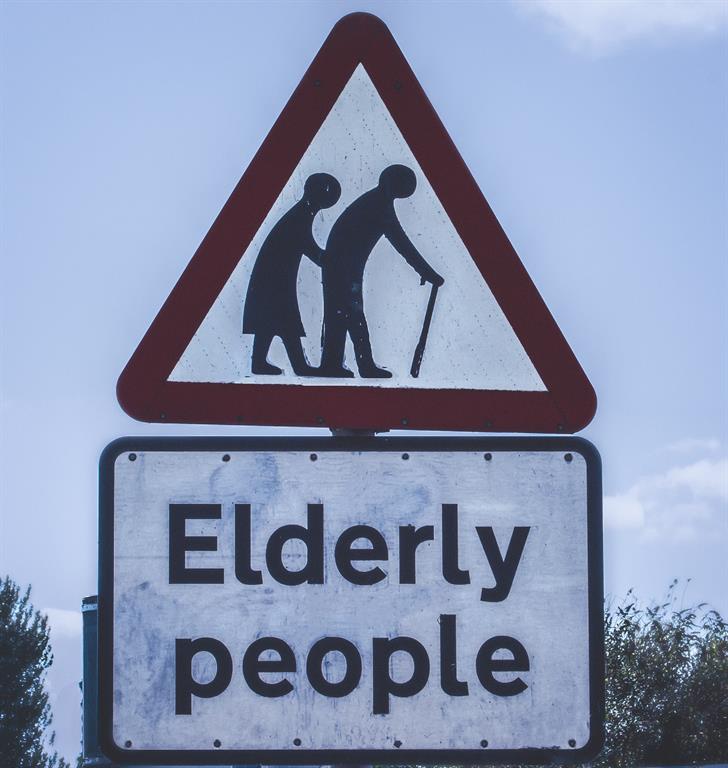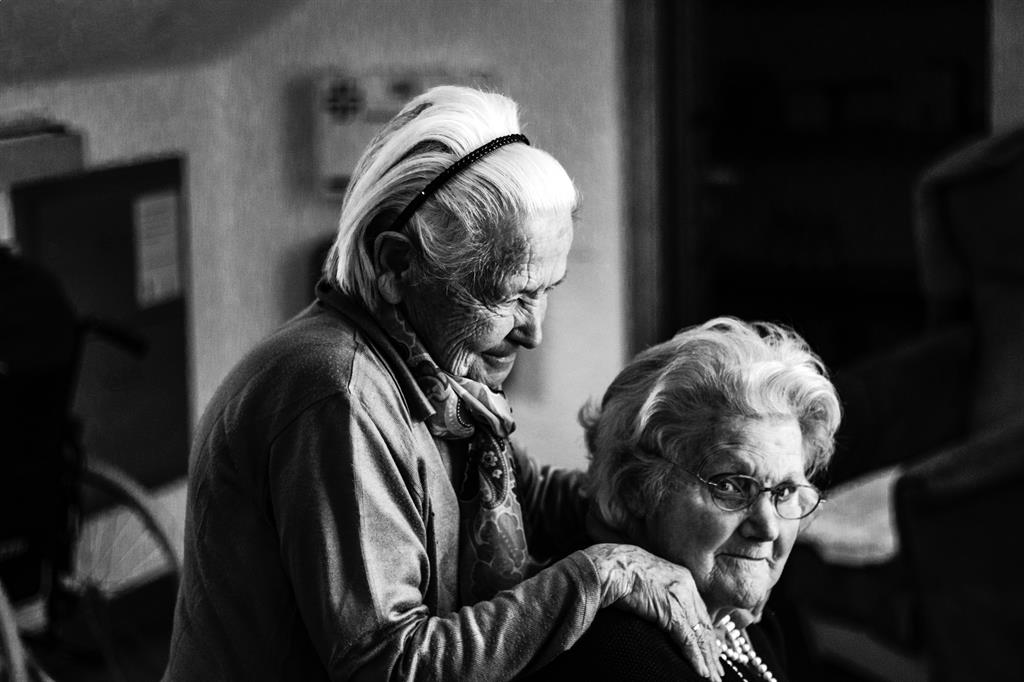The role of artificial intelligence in diagnoses
Digital technologies like smartphones and wearables could provide a low cost, easy-to-use way to pick up some of the very subtle early changes in diseases like Alzheimer’s.
Researchers at Cambridge University and Addenbrooke’s Hospital in Cambridge have developed an approach using artificial intelligence that can diagnose dementia from a single brain scan, as well as providing doctors with information about that person’s prognosis.
Prof Zoe Kourtzi, a researcher at Cambridge University and a fellow of the national centre for AI and data science, The Alan Turing Institute, developed the algorithm. Prof Kourtzi is also Scientific Director of Early Detection of Neurodegenerative diseases (EDoN), a global research project Alzheimer’s Research UK are spearheading and combines digital data from wearables to predict who may go on to develop dementia years before symptoms show.
The Cambridge University team will now work with doctors at Addenbrooke’s Hospital in Cambridge to test the AI approach in a real-world setting, with patients coming into the memory clinic with concerns about dementia.
Dr Laura Phipps at Alzheimer’s Research UK, said:
“Artificial intelligence systems like this are currently being applied to many aspects of healthcare, drawing on the insights from huge datasets to help doctors make more informed decisions about diagnosis, treatment and care.
“To diagnose dementia today, doctors need to rely on the interpretation of brain scans and cognitive tests, often over a period of time. Machine learning models such as those being developed by Prof Kourtzi could give doctors greater confidence in interpreting scans, leading to a more accurate diagnosis for patients.
“We hope that in future, such approaches will not only improve how current diagnostic techniques are implemented but open the door to revolutionary new approaches to detect the diseases that cause dementia much earlier. This would have a huge impact on people with dementia and their families.
“Artificial intelligence systems also make it possible to combine many different data types to accurately predict who might have a particular disease. Prof Kourtzi is leading an Alzheimer’s Research UK funded project called EDoN, combining digital data from apps and wearables including sleep, cognition, fine motor skills and brain activity to predict diseases like Alzheimer’s 15-20 years before we can today.”
Denise Wallin’s experience with her mum, Barbara, shows how difficult it can be to get an accurate diagnosis of dementia.
It took four years for Barbara to be diagnosed with dementia, and she was first wrongly diagnosed with vascular dementia before this was changed to frontotemporal dementia (FTD). She was aged 60 when she was diagnosed in 2012 and died in 2018.
Denise Wallin said:
“My mum was first diagnosed with depression, but I was convinced it was something more and thought it might be dementia.
“She did the memory tests, but she sailed through them, as FTD affects behaviour more than memory in the early stages.
“My dad, my brother and me would take it in turns to take her to her GP and we had to nag and nag him to send her for a scan.
“Eventually she had a brain scan and she was diagnosed with dementia, however she was originally diagnosed with vascular dementia.
“I read up about dementia and found the information about the different forms of dementia on the Alzheimer’s Research UK website really helpful. As I learned more I felt the vascular dementia diagnosis just didn’t add up.
“She was referred to a hospital consultant and her diagnosis was changed to FTD. It was a relief to finally get the diagnosis, although it was very sad. There aren’t any treatments specifically for FTD, but an early, accurate diagnosis would have avoided a lot of stress and helped us prepare for what was to come.”
Meanwhile the development of a wearable to detect early Alzheimer’s and other neurodegenerative diseases years before symptoms show is underway with Alzheimer’s Research UK in partnership with Boston University that will see the first digital data flowing into its global Early Detection of Neurodegenerative diseases (EDoN) initiative.
EDoN aims to use smartphone apps and wearables like smart watches and headbands to collect digital data on a range of measures including sleep, neural activity, cognition, speech and language, gait, heart rate, fine motor skills and physical activity.
The data will be validated with clinical data such as brain scans and analysed by EDoN’s Analytic Hub. By collecting and combining large amounts of retrospective and prospective digital and clinical data, the EDoN team hopes to develop robust machine learning models that could detect subtle patterns or ‘fingerprints’ in people’s digital data that could be a red flag for early disease.
If successful, EDoN will see experts developing a new digital toolkit that can collect the most predictive digital measures of early disease and could be used by doctors as part of a midlife health check to identify those most at risk of developing symptoms of dementia in the years ahead. Ultimately EDoN aims to collect data from up to 50 000 people through ongoing research studies across the world before testing its final digital device in up to 1 million people through health checks. The charity hopes that the digital fingerprints developed through EDoN’s work could not only indicate early disease but distinguish between the different diseases that cause dementia.
The COVID-19 pandemic has seen more health care being delivered remotely using technology, with a recent survey of attitudes to digital health during the pandemic showing that 73% of respondents agreed digital health technology is important to the future of health services. According to dr. Jesse Mez, digital technologies are providing ever more opportunities for people, and their doctors, to understand and monitor their health. “The diseases that cause dementia can start in midlife, but we currently don’t have inexpensive and non-invasive methods to detect this early disease. Digital technologies like smartphones and wearables could provide a low cost, easy-to-use way to pick up some of the very subtle early changes in diseases like Alzheimer’s. The findings of this study could really transform the way we tackle these diseases in the future,” he explained
According to Hilary Evans, CEO of Alzheimer’s Research UK, there are currently no treatments to slow or stop diseases like Alzheimer’s.
“To have the best chance to change lives in future, we need to be testing potential new treatments and preventions when these diseases are starting to take hold in the brain, not when the damage has already been done.
“Identifying diseases like Alzheimer’s much earlier than we can today would transform research efforts into the condition and help bring about these life-changing treatments much sooner. Brain health is an incredibly important part of our overall health. The technology being explored through EDoN could help raise red flags that would see many more people benefit from early conversations, diagnosis and access to treatment and research.” – www.edon-initiative.org
Prof Zoe Kourtzi, a researcher at Cambridge University and a fellow of the national centre for AI and data science, The Alan Turing Institute, developed the algorithm. Prof Kourtzi is also Scientific Director of Early Detection of Neurodegenerative diseases (EDoN), a global research project Alzheimer’s Research UK are spearheading and combines digital data from wearables to predict who may go on to develop dementia years before symptoms show.
The Cambridge University team will now work with doctors at Addenbrooke’s Hospital in Cambridge to test the AI approach in a real-world setting, with patients coming into the memory clinic with concerns about dementia.
Dr Laura Phipps at Alzheimer’s Research UK, said:
“Artificial intelligence systems like this are currently being applied to many aspects of healthcare, drawing on the insights from huge datasets to help doctors make more informed decisions about diagnosis, treatment and care.
“To diagnose dementia today, doctors need to rely on the interpretation of brain scans and cognitive tests, often over a period of time. Machine learning models such as those being developed by Prof Kourtzi could give doctors greater confidence in interpreting scans, leading to a more accurate diagnosis for patients.
“We hope that in future, such approaches will not only improve how current diagnostic techniques are implemented but open the door to revolutionary new approaches to detect the diseases that cause dementia much earlier. This would have a huge impact on people with dementia and their families.
“Artificial intelligence systems also make it possible to combine many different data types to accurately predict who might have a particular disease. Prof Kourtzi is leading an Alzheimer’s Research UK funded project called EDoN, combining digital data from apps and wearables including sleep, cognition, fine motor skills and brain activity to predict diseases like Alzheimer’s 15-20 years before we can today.”
Denise Wallin’s experience with her mum, Barbara, shows how difficult it can be to get an accurate diagnosis of dementia.
It took four years for Barbara to be diagnosed with dementia, and she was first wrongly diagnosed with vascular dementia before this was changed to frontotemporal dementia (FTD). She was aged 60 when she was diagnosed in 2012 and died in 2018.
Denise Wallin said:
“My mum was first diagnosed with depression, but I was convinced it was something more and thought it might be dementia.
“She did the memory tests, but she sailed through them, as FTD affects behaviour more than memory in the early stages.
“My dad, my brother and me would take it in turns to take her to her GP and we had to nag and nag him to send her for a scan.
“Eventually she had a brain scan and she was diagnosed with dementia, however she was originally diagnosed with vascular dementia.
“I read up about dementia and found the information about the different forms of dementia on the Alzheimer’s Research UK website really helpful. As I learned more I felt the vascular dementia diagnosis just didn’t add up.
“She was referred to a hospital consultant and her diagnosis was changed to FTD. It was a relief to finally get the diagnosis, although it was very sad. There aren’t any treatments specifically for FTD, but an early, accurate diagnosis would have avoided a lot of stress and helped us prepare for what was to come.”
Meanwhile the development of a wearable to detect early Alzheimer’s and other neurodegenerative diseases years before symptoms show is underway with Alzheimer’s Research UK in partnership with Boston University that will see the first digital data flowing into its global Early Detection of Neurodegenerative diseases (EDoN) initiative.
EDoN aims to use smartphone apps and wearables like smart watches and headbands to collect digital data on a range of measures including sleep, neural activity, cognition, speech and language, gait, heart rate, fine motor skills and physical activity.
The data will be validated with clinical data such as brain scans and analysed by EDoN’s Analytic Hub. By collecting and combining large amounts of retrospective and prospective digital and clinical data, the EDoN team hopes to develop robust machine learning models that could detect subtle patterns or ‘fingerprints’ in people’s digital data that could be a red flag for early disease.
If successful, EDoN will see experts developing a new digital toolkit that can collect the most predictive digital measures of early disease and could be used by doctors as part of a midlife health check to identify those most at risk of developing symptoms of dementia in the years ahead. Ultimately EDoN aims to collect data from up to 50 000 people through ongoing research studies across the world before testing its final digital device in up to 1 million people through health checks. The charity hopes that the digital fingerprints developed through EDoN’s work could not only indicate early disease but distinguish between the different diseases that cause dementia.
The COVID-19 pandemic has seen more health care being delivered remotely using technology, with a recent survey of attitudes to digital health during the pandemic showing that 73% of respondents agreed digital health technology is important to the future of health services. According to dr. Jesse Mez, digital technologies are providing ever more opportunities for people, and their doctors, to understand and monitor their health. “The diseases that cause dementia can start in midlife, but we currently don’t have inexpensive and non-invasive methods to detect this early disease. Digital technologies like smartphones and wearables could provide a low cost, easy-to-use way to pick up some of the very subtle early changes in diseases like Alzheimer’s. The findings of this study could really transform the way we tackle these diseases in the future,” he explained
According to Hilary Evans, CEO of Alzheimer’s Research UK, there are currently no treatments to slow or stop diseases like Alzheimer’s.
“To have the best chance to change lives in future, we need to be testing potential new treatments and preventions when these diseases are starting to take hold in the brain, not when the damage has already been done.
“Identifying diseases like Alzheimer’s much earlier than we can today would transform research efforts into the condition and help bring about these life-changing treatments much sooner. Brain health is an incredibly important part of our overall health. The technology being explored through EDoN could help raise red flags that would see many more people benefit from early conversations, diagnosis and access to treatment and research.” – www.edon-initiative.org







Kommentaar
Republikein
Geen kommentaar is op hierdie artikel gelaat nie